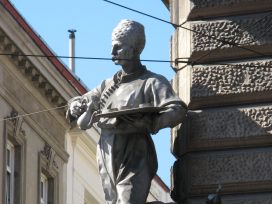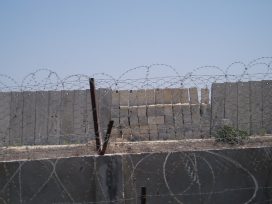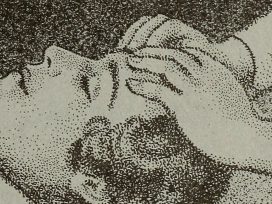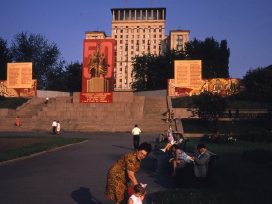“Je suis Charlie”. It’s a phrase in every newspaper, in every Twitter feed, on demonstrations in cities across Europe. The expressions of solidarity with those slain in the attack on the Charlie Hebdo offices are impressive. They are also too late. Had journalists and artists and political activists taken a more robust view on free speech over the past 20 years then we may never have come to this.
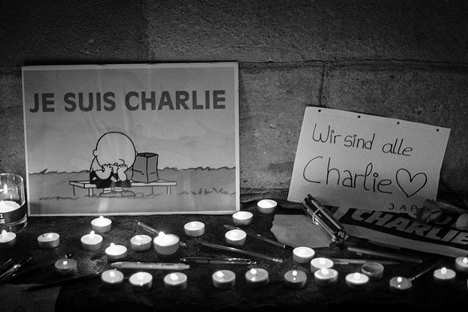
Scene form a rally in Toulouse, 8 January 2015, in support of the victims of the 2015 Charlie Hebdo shooting. Photo: Pierre-Selim. Source:Wikimedia
Instead, they have helped create a new culture of self-censorship. Partly, it is a question of fear, an unwillingness to take the kind of risks that the editors of Charlie Hebdo courted, and for which they have paid such a heavy price. But fear is only part of the explanation. There has also developed over the past two decades a moral commitment to censorship, a belief that because we live in a plural society, so we must police public discourse about different cultures and beliefs, and constrain speech so as not to give offence. In the words of the British sociologist Tariq Modood, “If people are to occupy the same political space without conflict, they mutually have to limit the extent to which they subject each others’ fundamental beliefs to criticism.”
So deep has this belief become embedded that even free speech activists have bought into it. Six years ago, Index on Censorship, one of the world’s foremost free speech organizations, published in its journal an interview with the Danish-American academic Jytte Klausen about her book on the Danish cartoon controversy. But it refused the then editor permission to publish any of the cartoons to illustrate the interview. I was at the time a board member of Index – but the only one who publicly objected. “In refusing to publish the cartoons”, I observed, “Index is not only helping strengthen the culture of censorship, it is also weakening its authority to challenge that culture”.
This time round, Index on Censorship laudably insists that “Freedom of expression is non-negotiable” and is calling “on all those who believe in the fundamental right to freedom of expression to join in publishing the cartoons or covers of Charlie Hebdo“. But the culture of self-censorship has already become deeply entrenched. Indeed Charlie Hebdo itself has equivocated. All too often the defence of free speech has come with double standards attached.
The irony is that those who most suffer from a culture of censorship are minority communities themselves. Any kind of social change or social progress necessarily means offending some deeply held sensibilities. “You can’t say that!” is all too often the response of those in power to having their power challenged. To accept that certain things cannot be said is to accept that certain forms of power cannot be challenged. The right to “subject each others’ fundamental beliefs to criticism” is the bedrock of an open, diverse society. Once we give up such a right in the name of “tolerance” or “respect”, we constrain our ability to confront those in power, and therefore to challenge injustice.
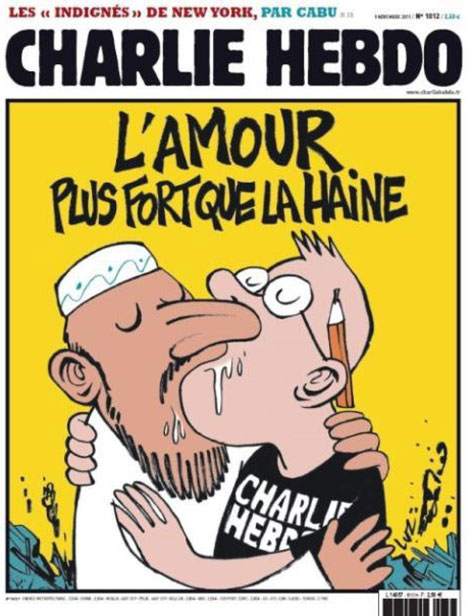
Yet, hardly had news begun filtering out about the Charlie Hebdo shootings, than there were those suggesting that the magazine was a “racist institution” and that the cartoonists, if not deserving what they got, had nevertheless brought it on themselves through their incessant attacks on Islam. What is really racist is the idea that only nice white liberals want to challenge religion or demolish its pretensions or can handle satire and ridicule. Those who claim that it is “racist” or “Islamophobic” to mock the Prophet Mohammad, appear to imagine, with the racists, that all Muslims are reactionaries. It is here that leftwing “anti-racism” joins hands with rightwing anti-Muslim bigotry.
What is called “offence to a community” is more often than not actually a struggle within communities. There are hundreds of thousands, within Muslim communities in the West, and within Muslim-majority countries across the world, challenging religious-based reactionary ideas and policies and institutions; writers, cartoonists, political activists, daily putting their lives on the line in facing down blasphemy laws, standing up for equal rights and fighting for democratic freedoms; people like Pakistani cartoonist Sabir Nazar, the Bangladeshi writer Taslima Nasreen, exiled to India after death threats, or the Iranian blogger Soheil Arabi, sentenced to death last year for “insulting the Prophet”. What happened in the Charlie Hebdo offices in Paris was viscerally shocking; but in the non-western world, those who stand up for their rights face such threats every day.
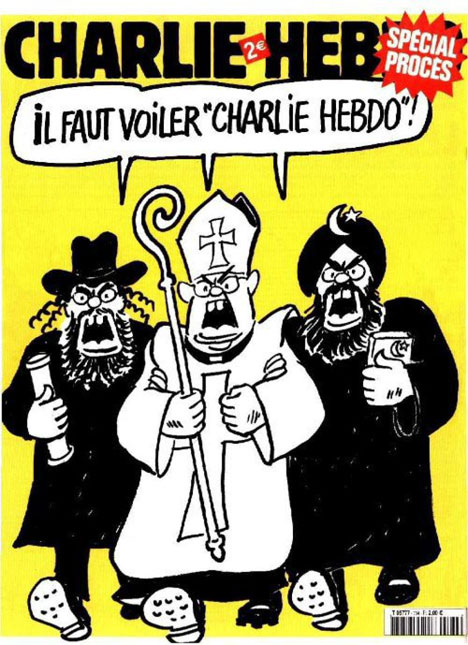
What nurtures the reactionaries, both within Muslim communities and outside it, is the pusillanimity of many so-called liberals, their unwillingness to stand up for basic liberal principles, their readiness to betray the progressives within minority communities. On the one hand, this allows Muslim extremists the room to operate. The more that society gives licence for people to be offended, the more that people will seize the opportunity to feel offended. And the more deadly they will become in expressing their outrage. There will always be extremists who respond as the Charlie Hebdo killers did. The real problem is that their actions are given a spurious moral legitimacy by liberals who proclaim it unacceptable to give offence.
Liberal pusillanimity also helps nurture anti-Muslim sentiment. It feeds the racist idea that all Muslims are reactionary, that Muslims themselves are the problem, that Muslim immigration should be stemmed, and the Muslim communities should be more harshly policed. It creates the room for organizations such as the Front National to spread its poison. Whether there is an anti-Muslim backlash after the Charlie Hebdo killings remains to be seen, though there are reports of attacks on mosques and community centres. The fake liberals have played their role in fostering reactionary ideas about Muslims.
To ridicule religion and to defend free expression is not to attack minority communities. On the contrary: without doing both it is impossible to defend the freedoms of Muslims or of any one else. So, yes, let us challenge the Islamists and the reactionaries within Muslim communities. Let us also challenge the anti-Muslim reactionaries. But equally let us call the fake liberals to account.
